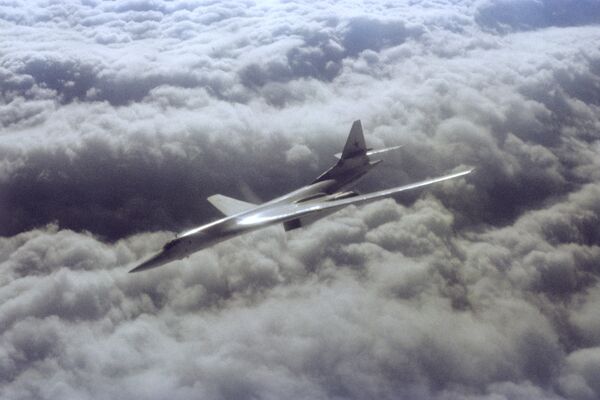Russia's Air Force has denied claims by Britain that Russian Tu-160 Blackjack strategic bombers violated UK airspace on March 10.
The U.K. Defense Ministry said on Thursday that two RAF Tornado F3 fighters took off on alert after the Russian bombers allegedly intruded the country's airspace northwest of Scotland. The statement said the planes accompanied the Russian bombers until they left British airspace.
"Tu-160 strategic bombers did indeed make routine flights over the Arctic and Atlantic oceans on March 10, but there were no airspace violations," Russian Air Force spokesman Lt. Col. Vladimir Drik told RIA Novosti.
Drik added that the Russian Air Force had distributed an official statement on March 12, which said that two Russian Tu-160s had carried out an 11-hour routine patrol mission over the Arctic and Atlantic Oceans and were shadowed by four NATO fighters - two NATO F-16 Fighting Falcons of the Norwegian Air Force and two RAF Tornados.
"All flights of Air Force aircraft were and are fulfilled in strict compliance with the international rules on the use of airspace over neutral waters, without violation of other states' borders," Drik said.
A similar patrol mission in September 2009 was shadowed by an F-22 Raptor, reportedly the first time the world's only fifth-generation fighter aircraft, which uses stealth technology, was sent out to keep an eye on Russian planes.
Russian strategic bombers resumed patrol flights over the Pacific, Atlantic, and Arctic oceans in August 2007, following an order from then-President Vladimir Putin, and are usually shadowed by less sophisticated NATO aircraft.
Russia has yet to develop a fifth-generation fighter and has just started testing a prototype, known as the T-50, which is not expected to enter service until 2015. A second U.S. fifth-generation fighter, the F-35 Lightning II, is due to enter service with the U.S. Marine Corps in 2012.
MOSCOW/LONDON, March 25 (RIA Novosti)


